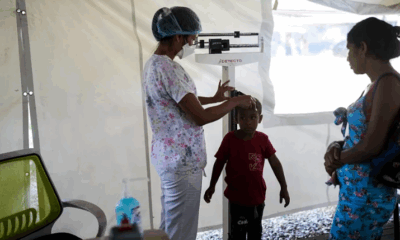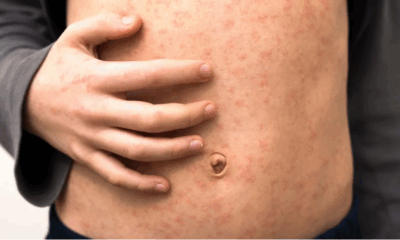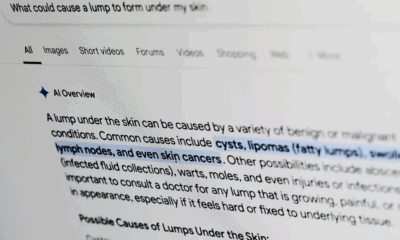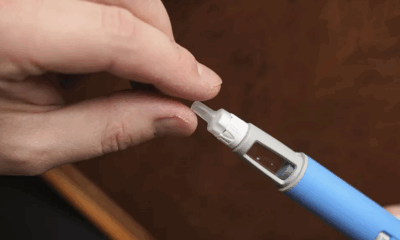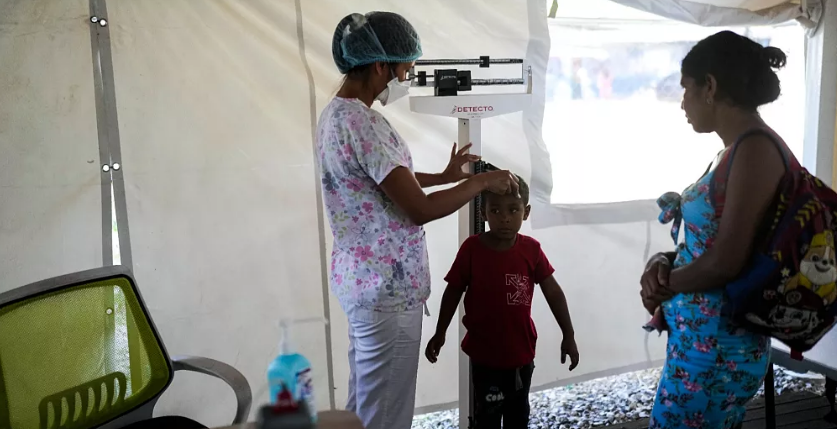Health
EU Health Ministers Push for Critical Medicines to Be Included in Defence Funding
A coalition of 11 EU health ministers is calling for the European Union to integrate funding for critical medicines into its broader defence strategy. The proposal, outlined in an op-ed published on Euronews, urges the inclusion of the upcoming Critical Medicines Act within the EU’s new defence spending framework, citing medicine security as a crucial element of European stability.
The ministers—from Belgium, Czechia, Cyprus, Estonia, Germany, Greece, Latvia, Lithuania, Portugal, Slovenia, and Spain—argue that without a secure supply of essential medicines, Europe’s defence capabilities could be at risk.
A Call for Strategic Investment in Medicine Security
The proposed Critical Medicines Act, set to be unveiled this week by the European Commission, aims to address severe shortages of essential medicines such as antibiotics, insulin, and painkillers. The initiative would focus on medicines that are difficult to source, often relying on a limited number of manufacturers or imports from non-EU countries.
The health ministers advocate for the act to be financed under the EU’s defence budget, allowing it to access part of the €800 billion expected to be mobilized under the Rearm Europe plan. This defence funding package, discussed at last week’s extraordinary EU summit, is designed to ramp up military and security spending across the bloc.
The proposal suggests embedding medicine production investments within a new €150 billion EU defence instrument, which would enable the Commission to borrow from capital markets, issue bonds, and lend to member states.
Parallels with U.S. Defence Strategy
In their op-ed, the ministers drew comparisons to the United States’ Defence Production Act (DPA), which classifies pharmaceutical supply chains as a national security concern. The DPA allows the U.S. government to map supply chains, identify vulnerabilities, and prioritize investments in domestic pharmaceutical production.
The European ministers warn that Europe’s heavy reliance on pharmaceutical imports from Asia—where up to 80% of key medicine ingredients are sourced—poses a serious risk in times of crisis or geopolitical tensions.
“If the supply chain of antibiotics is interrupted in the midst of an escalating conflict, routine surgeries become high-risk procedures, and easily treatable infections could turn fatal,” the ministers wrote. “Foreign actors could exploit this dependency, creating a major security risk for Europe.”
Budget Implications and Political Uncertainty
The push for integrating medicine funding into defence spending comes amid uncertainty over future EU health budgets. The EU4Health programme, launched in response to the COVID-19 pandemic, received €5.3 billion in funding, but recent cuts—including the reallocation of €1 billion to aid Ukraine—have raised concerns over its sustainability.
The European Commission’s next seven-year budget is expected to be tight, and there are indications that dedicated health funding could be merged with other sectors or even eliminated. The proposed defence-linked mechanism, however, could allow increased national health spending by temporarily exempting defence-related expenditures—including medicine security—from EU fiscal limits for four years.
Will the Proposal Gain Political Backing?
It remains uncertain whether the European Commission and Members of the European Parliament (MEPs) will incorporate the ministers’ proposal into legislative talks on the Critical Medicines Act. While some policymakers may welcome a stronger pharmaceutical supply chain as part of Europe’s strategic autonomy, others may be reluctant to blur the lines between health policy and defence spending.
With the legislative proposal expected on Tuesday, the debate over how Europe secures its essential medicines is set to intensify in the coming weeks.
Health
Early-Onset Cancer Rates Rising in U.S., But Deaths Mostly Stable, Study Finds

A new U.S. government study has revealed that while cancer diagnoses among people under 50 are on the rise, the overall death rates for most types of cancer in this age group remain stable.
Published Thursday in the journal Cancer Discovery, the study is one of the most comprehensive assessments to date of early-onset cancers, analyzing data from more than two million cases diagnosed in Americans aged 15 to 49 between 2010 and 2019.
The findings show that 14 out of 33 cancer types had increasing incidence rates in at least one younger age group. The most significant increases were seen in breast, colorectal, kidney, and uterine cancers. Women accounted for about 63 percent of the early-onset cases.
“This pattern generally reflects something profound going on,” said Tim Rebbeck of the Dana-Farber Cancer Institute, who was not involved in the study. “We need to fund research that will help us understand why this is happening.”
The study found that, compared to 2010 data, there were 4,800 more breast cancer cases, 2,000 additional colorectal cancers, 1,800 more kidney cancers, and 1,200 extra uterine cancers by 2019.
Despite the rising numbers, researchers emphasized a key reassurance: death rates for most of these cancers are not increasing. However, exceptions were noted—colorectal, uterine, and testicular cancers saw slight rises in mortality among younger adults.
The causes behind the rise in early-onset cancers are not fully understood. The study’s datasets do not include information on potential risk factors such as obesity, lifestyle, or access to healthcare. However, researchers, including lead author Dr. Meredith Shiels of the National Cancer Institute, highlighted obesity as a possible driver.
“Several of these cancer types are known to be associated with excess body weight,” said Dr. Shiels. She also pointed to advances in detection and changing screening practices as possible contributors to earlier diagnoses.
Breast cancer trends may also be influenced by shifting reproductive patterns, such as women having children later in life, which has been associated with increased cancer risk due to fewer years of pregnancy and breastfeeding—factors known to lower risk.
Not all cancer types followed the upward trend. Rates of more than a dozen cancers, including lung and prostate cancer, are decreasing among younger people. Researchers attribute the lung cancer decline to reduced smoking rates, while updated PSA screening guidelines are likely behind the drop in prostate cancer diagnoses.
Experts plan to convene later this year to further investigate the growing early-onset cancer burden and explore targeted prevention strategies.
Health
UK Scientists Develop Tool to Measure ‘Heart Age,’ Offering New Insights for Cardiovascular Health
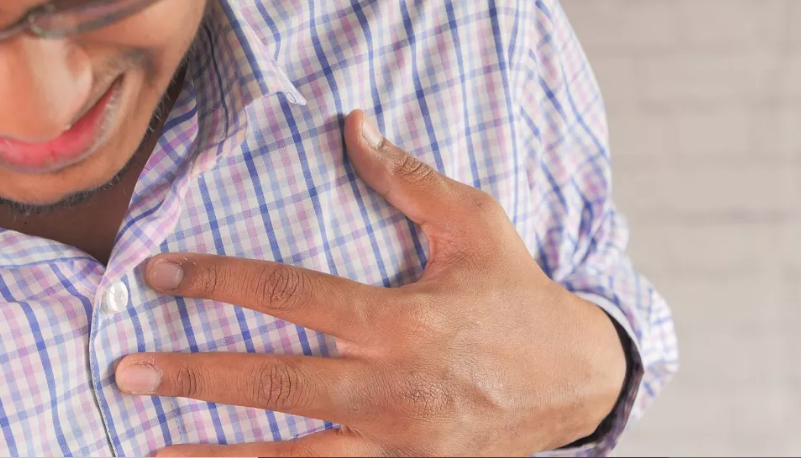
Researchers in the United Kingdom have developed a new tool that can determine how old a person’s heart is in comparison to their actual age, offering a potential breakthrough in the early detection and prevention of cardiovascular disease.
The study, led by scientists at the University of East Anglia (UEA), examined magnetic resonance imaging (MRI) scans from 557 individuals across the UK, Spain, and Singapore. Of those, 336 participants had known health risk factors such as obesity, high blood pressure, or diabetes.
Using these scans, the researchers measured structural and functional markers of cardiac health — including the size of the heart’s chambers and how effectively it pumps blood. These indicators were then used to create an algorithm that calculates the heart’s “functional age.”
The findings, published in the European Heart Journal, revealed that individuals with cardiovascular risk factors had hearts that were, on average, 4.6 years older than their chronological age. In people with obesity, the gap was even wider, indicating faster cardiac ageing.
“People with health issues like diabetes or obesity often have hearts that are ageing faster than they should – sometimes by decades,” said Dr. Pankaj Garg, a cardiologist and lead author of the study. “This tool gives us a way to visualize and quantify that risk.”
While the tool shows promise, researchers noted some limitations. The model does not account for how long patients had lived with their conditions, and the study group primarily included older individuals who had survived with these health issues — raising concerns about survivor bias. The relatively small sample size also means the tool needs broader validation before it can be widely adopted.
Despite these limitations, the research team believes the tool could have valuable clinical applications in the future. Dr. Garg said it may help doctors counsel patients more effectively about their cardiovascular health and recommend lifestyle changes or treatments to slow heart ageing.
“By knowing your heart’s true age, patients could get advice or treatments to slow down the ageing process, potentially preventing heart attacks or strokes,” he said. “It’s about giving people a fighting chance against heart disease.”
The team hopes the tool could eventually be integrated into routine care, empowering patients to take early steps toward improving their heart health through diet, exercise, and medical intervention.
Health
Global Health Inequities Persist as Progress on Life Expectancy and Mortality Slows, Says WHO
-

 Business12 months ago
Business12 months agoSaudi Arabia’s Model for Sustainable Aviation Practices
-

 Business12 months ago
Business12 months agoRecent Developments in Small Business Taxes
-

 Politics12 months ago
Politics12 months agoWho was Ebrahim Raisi and his status in Iranian Politics?
-

 Business10 months ago
Business10 months agoCarrectly: Revolutionizing Car Care in Chicago
-

 Business10 months ago
Business10 months agoSaudi Arabia: Foreign Direct Investment Rises by 5.6% in Q1
-

 Technology12 months ago
Technology12 months agoComparing Apple Vision Pro and Meta Quest 3
-

 Politics12 months ago
Politics12 months agoIndonesia and Malaysia Call for Israel’s Compliance with ICJ Ruling on Gaza Offensive
-

 Technology12 months ago
Technology12 months agoRecent Developments in AI Ethics in America





